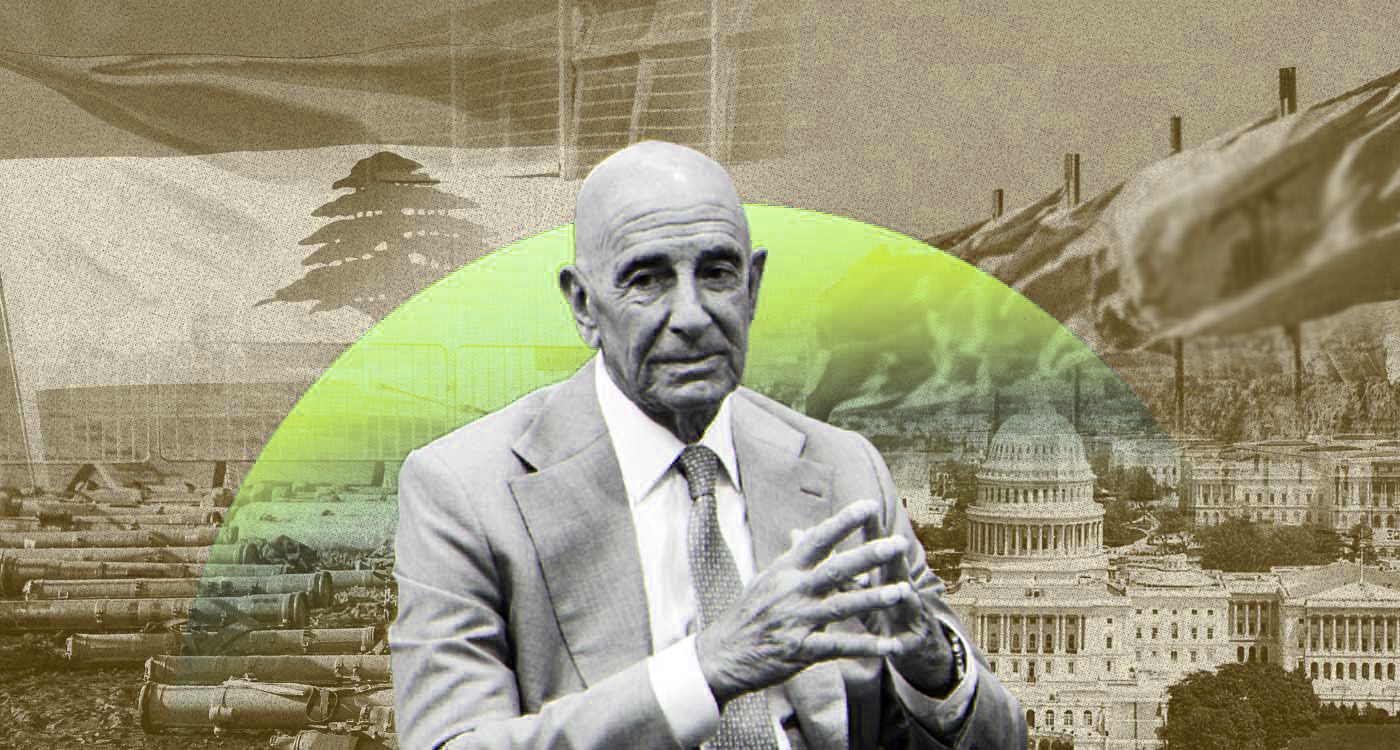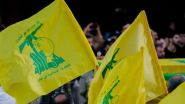
Listening to Thomas Barrack, one might think Lebanon is close to redemption or on the edge of a cliff, perhaps both at once. For months now, the American special envoy has issued statements that are sometimes hopeful, sometimes threatening, often confusing, and always repetitive. With every tweet and announcement, the same message comes through: disarm Hezbollah, restore state sovereignty, engage in regional dialogue. These words have become a repeated mantra, spoken with conviction but yielding no real results. It feels like Barrack is reading from a script that no one, including himself, is following.
“This is not Philippe Habib in 1982,” says retired General Khalil Helou bluntly in an interview with **). “We are dealing with a diplomat on an administrative mission, not a strategist challenging the established order.” According to the expert, Barrack’s statements barely scratch the surface of reality. “He talks a lot about sovereignty without ever addressing the core issue: how to reclaim it in practical terms.” A sharp assessment. Helou adds that Barrack does not even seem to fully understand the workings of Lebanon’s institutions. What remains most puzzling about the U.S. special envoy is the constant fluctuation in his rhetoric.
In Beirut, he comes across as optimistic. In Paris, he warns of an existential threat. In a meeting with House Speaker Nabih Berry, he praises dialogue and expresses satisfaction with the outcome. But before PM Nawaf Salam, he signals impending danger. It’s difficult to keep track. At times, he speaks of hope for a diplomatic breakthrough; at others, he raises the threat of sanctions or regional escalation.
“Actions, not words”
“His statements should be seen as a direct reflection of Washington’s real stance,” explains Helou. “That stance hasn’t changed since the beginning: The Americans want action, not words. So far, all they’ve seen are slogans.”
According to a Lebanese analyst who requested anonymity, Thomas Barrack’s mission focuses on two main goals: disarming Hezbollah and normalizing relations with Israel. Ambitious? Some say it’s too much. Others believe it’s realistic. Especially since, so far, the American envoy has gained nothing more than empty promises and polite smiles.
“The Lebanese president, Joseph Aoun, has handed the matter over to the Speaker of Parliament, Nabih Berry,” the source explains. “Berry is waiting for the outcome of the U.S.-Iran power struggle. In the meantime, everyone is playing a waiting game.”
The truth is that Lebanon is no longer a priority, according to some observers. Focus has shifted elsewhere, particularly to Syria, where talks are underway to reorganize the army, pursue normalization with Israel, and where six billion dollars in Saudi investments have already been pledged.
In this context, last Thursday in Damascus, Saudi Arabia signed investment and partnership agreements with Syria totaling 6.4 billion dollars. These funds aim to rebuild infrastructure and other key sectors in the war-ravaged country.
Meanwhile, the Lebanese file continues to gather dust.
To date, no serious national proposal has been put forward, no mechanism established, and no concrete measures taken on the ground. Just words. Many words, along with numerous plans, roadmaps, deadlines, and promises, most of which have gone nowhere.
In his statements, President Aoun calls for the Lebanese state to have a monopoly on arms, but also for an Israeli withdrawal, which he considers a necessary condition for Hezbollah’s disarmament. Political-strategic naivety? A change of direction? Or a bet on time to shape strategies, actions, and outcomes?
Prime Minister Nawaf Salam echoes the same message. Meanwhile, the latest initiative endorsed by both House Speaker Nabih Berry and the American envoy during his second-to-last visit to Beirut in July is known as the “step-by-step” plan. It is expected to start in early August. The process begins with an assessment of intentions, followed by a series of gradual exchanges: a weapons deposit returned here, a hill evacuated there. In short, a typically Lebanese negotiation that is slow, ambiguous, and dependent on multiple external factors.
Like all the plans that have piled up, this one has once again collided with harsh reality. Israel, viewing Hezbollah as weakened, rejected any notion of reciprocity. Hezbollah, meanwhile, has no intention of giving up even a fraction of its influence while negotiations between Iran and the United States remain unresolved. “Why disarm now, when Tehran might still need us as leverage?” is a question often heard in Shiite circles.
In fact, no one has much reason to move. Hezbollah continues to hold sway over key decisions through its institutional networks. The Lebanese executive, frozen by fear and ambiguity, is unwilling to confront the party yet just as unwilling to act as though it is truly governing. And despite his repeated rounds, Barrack has yet to find a way to break the deadlock.
Short of a miracle, no major shift seems to be looming on the horizon, says General Helou. Hezbollah will not disarm. The Lebanese state will not regain control. Israel will not invade the South; targeted assassinations and control of the hilltops are enough. And Arab capitals are unlikely to send help, given the absence of credible partners in Beirut.
The Politics of Waiting
Thomas Barrack may well return once again. He will say, once more, that “the moment is critical,” that “the window of opportunity is narrow,” that “the Lebanese must make a historic choice.” People will listen, offer polite applause, and go home. Nothing will change.
The reality is that Lebanon has settled into a tragic routine of waiting, avoidance, and gradual decline. And Barrack, despite his “good intentions” or administrative energy, will remain powerless to change anything as long as Beirut believes it can be saved without having to decide.




Comments